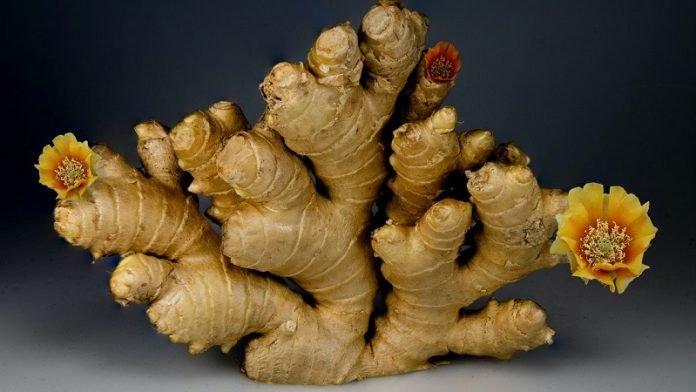
Ginger is a flowering plant whose rhizome, ginger root, or ginger, is widely used as a spice and folk medicine.
It is a herbaceous perennial which grows annual pseudostems about one meter tall bearing narrow leaf blades.
Raw ginger is 79% water, 18% carbohydrates, 2% protein, and 1% fat.
In 100 grams (a standard amount used to compare with other foods), raw ginger supplies 333 kilojoules (80 kilocalories) of food energy and contains moderate amounts of vitamin B6 (12% of the Daily Value, DV) and the dietary minerals, magnesium (12% DV) and manganese (11% DV).
This Health & Medicine Lab video talks about how ginger may help reduce obesity and fatty liver disease.
If you care about wellness, please read studies about two common eating habits that can make you gain too much weight, and seaweed that may prevent obesity, fatty liver disease.
Disclaimer: Any information on diseases and treatments available in this video is intended for general guidance only and must never be considered a substitute for the advice provided by your doctor or other qualified healthcare professional.
Always seek the advice of your physician or other qualified health care professional with questions you may have regarding your medical condition.



